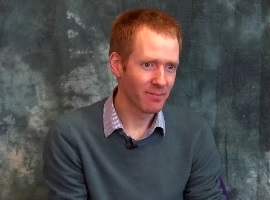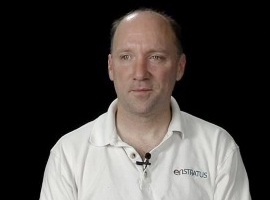InfoQ Homepage IaaS Content on InfoQ
-
David Riddoch on Bypassing the Kernel and Hypervisor for Network I/O, Solarflare, OpenOnload
David Riddoch explains how bypassing the OS kernel's networking stack can improve latency and throughput, networking with Solarflare and OpenOnload, hypervisor bypass, and much more.

-
Amir Chaudhry on Unikernels, MirageOS, HalVM, Rump Kernels
Amir Chaudhry explains the ideas behind Unikernels, implementations like the OCaml-based MirageOS and Haskell-based HalVM, Rump Kernels for integrating with legacy code and much more.

-
Adam Wick on Security, Formal Methods, Types, Unikernels, HaLVM, DRM
Adam Wick talks about software security, research into formal methods and randomisation as well as documentation and types to help write secure software, HalVM and other Unikernels, DRM.

-
Anil Madhavapeddy on Unikernels and OCaml
Anil Madhavapeddy describes why unikernels have important security properties, how they can be built, and how they can be utilised alongside of Docker containers. He stresses the importance of type safe languages, particularly OCaml, which was used for the Mirage OS project, but also touches upon Go and Rust.

-
Jeff Lindsay on Best Practices for Working with Containers and Docker
Jeff Lindsay explains the difference between virtualization and containers, what Docker brings to the table, best practices for using containers and what to avoid, and much more.

-
Ines Sombra on Data Services at Engine Yard
Engine Yard's Ines Sombra discusses state management in the cloud in general, and specific data stores including MySQL, Postgres and some NoSQL alternatives. She also explains why the pets and cattle analogy doesn't work for her, and what need to be done in organisations with respect to trusting people and trusting the infrastructure.

-
Simon Wardley on the Cloud Landscape
Simon Wardley talks about Amazon and it's competitive landscape, including Google, OpenStack, telcos and the hardware manufactures. Looking at how Amazon got to be so dominant in the IaaS space, the missteps by established vendors in letting it, and where future competition might come from. With a short detour to discuss Cloud Foundry and platform strategy.

-
Chris Mattmann on Big Data Infrastructure for Scientific Data Processing
Chris Mattmann explains the type and magnitude of data produced in scientific projects like the Square Kilometer Array Telescope, the tools to use for scientific data processing and much more.

-
Machine Learning Netflix Style with Xavier Amatriain
Xavier Amatriain discusses how Netflix uses specialized roles, including that of the Data Scientist and Machine Learning Engineer, to deliver valuable data at the right time to Netflix' customer base through a mixture of offline, online, and nearline data processes. Xavier also discusses what it takes to become a Machine Learning Engineer and how to gain real experience in the field.

-
Brian McCallion on Enterprise Considerations for Cloud, Hybrid Strategies, and Amazon RedShift
Enterprise cloud specialist Brian McCallion talks about what's really holding back enterprises from adopting the cloud, how they should address their legacy applications, ways to avoid introducing complexity in distributed environments, the value of Amazon Redshift, and how technologists should broaden their knowledge and avoid specialization.

-
George Reese on Enterprise Cloud Strategy, Trends, and API Design
Cloud leader George Reese answers questions across a wide range of topics. He shares his thoughts on pitfalls of enterprise cloud strategies, overrated technologies, whether IaaS standards matter yet, the relevance of private clouds, and the need for common sense when designing a API.

-
Optimizing for Big Data at Facebook
Hive co-creator Ashish Thusoo describes the Big Data challenges Facebook faced and presents solutions in 2 areas: Reduction in the data footprint and CPU utilization. Generating 300 to 400 terabytes per day, they store RC files as blocks, but store as columns within a block to get better compression. He also talks about the current Big Data ecosystem and trends for companies going forward.
